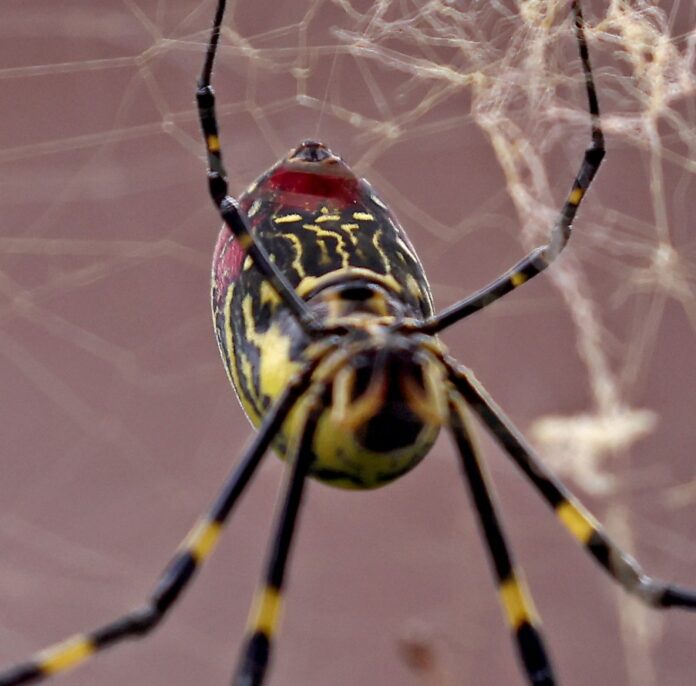They’re here.
Well, at least one is.
It’s an arachnophobe’s worst nightmare coming true: A giant Joro spider has been confirmed in Boston for the first time.
It’s the first confirmed Joro sighting in Massachusetts, and “the most northern sighting yet,” the leading Joro researcher from the University of Georgia told the Herald on Wednesday.
The Herald sent arachnid researcher Andy Davis photos of the spider spotted in Beacon Hill, and Davis confirmed that the large black and yellow spider is in fact a Joro.
“That’s definitely a big fat female Joro spider,” said Davis, a research scientist at the University of Georgia’s Odum School of Ecology.
“The first one I’ve heard of in that area, and, the most northern sighting yet,” he added.
The previous most northern confirmed sighting of the invasive parachuting species was in Pennsylvania, in Bucks County located north of Philadelphia.
“It wouldn’t surprise me at all if people started seeing these in other northern areas,” Davis said. “They’re going to start showing up around the country, and a new study said they could even spread up to Canada.
“People need to learn to live with them because they’re coming, and you can’t stop it,” he added. “They’re not out to get you, and they’re actually one of the shyest spiders ever documented.”
The massive spiders have been spreading for years across the Southeast, where there are now millions of the eight-legged creatures. Davis has hundreds of the spiders and their massive webs in his backyard.
The researcher had previously predicted that Joro spiders would move up the East Coast because they’re really good at hitching rides on cars.
“I’ve been driving down the highway (in Georgia), and I look over at my passenger side mirror, and a spider is hanging off of it,” Davis said.
Officially known as Trichonephila clavata, the East Asian Joro spider first arrived in Georgia around 2013. The species is native to Japan, Korea, Taiwan and China, and likely hitched a ride stateside on a shipping container.
“They can definitely survive in a cooler climate like New England,” Davis said.
If you pick one up, the spider might try to bite you. But its fangs likely wouldn’t be large enough to pierce your skin.
“They’re no more dangerous than any backyard garden spider,” Davis said.
The spiders eat flies and mosquitoes, along with native pollinators like bees.
The Herald learned about the Joro spider in Beacon Hill from local photographer Joe Schifferdecker. The Cambridge resident saw the spider while he was walking down Mount Vernon Street after he had done a photo shoot in the picturesque neighborhood.
“It was easily the biggest spider I had ever seen,” said Schifferdecker, who’s really into nature photography, so he returned to Mount Vernon Street with his wildlife lens and captured the spider.
Later, while he was showing his friend the spider photos, his friend recognized the spider from the social media hysteria of Joro spiders.
“It’s pretty funny that the first one confirmed in all of Mass. is right here in the middle of Boston, next to the sidewalk,” Schifferdecker said.
The Joro spider is in a Beacon Hill woman’s yard.
“It’s very cute compared to all the mice and rats that we have around,” said the woman named Hoda, who declined to share her last name.
She has noticed the spider for more than a week, but she didn’t know until Wednesday that “it’s a special one.”
This Joro spider will lay an egg sac before winter, and the spider will then die a few weeks later, Davis said.
“They only live for one year, and then keep the generations going through egg sacs,” he added. “These sacs can survive pretty harsh winters.”
Baby spiders will eventually emerge from the sac, and then they can parachute for miles before settling down.
If you see a Joro spider, Davis encourages you to report it to the tracking website jorowatch.org.




